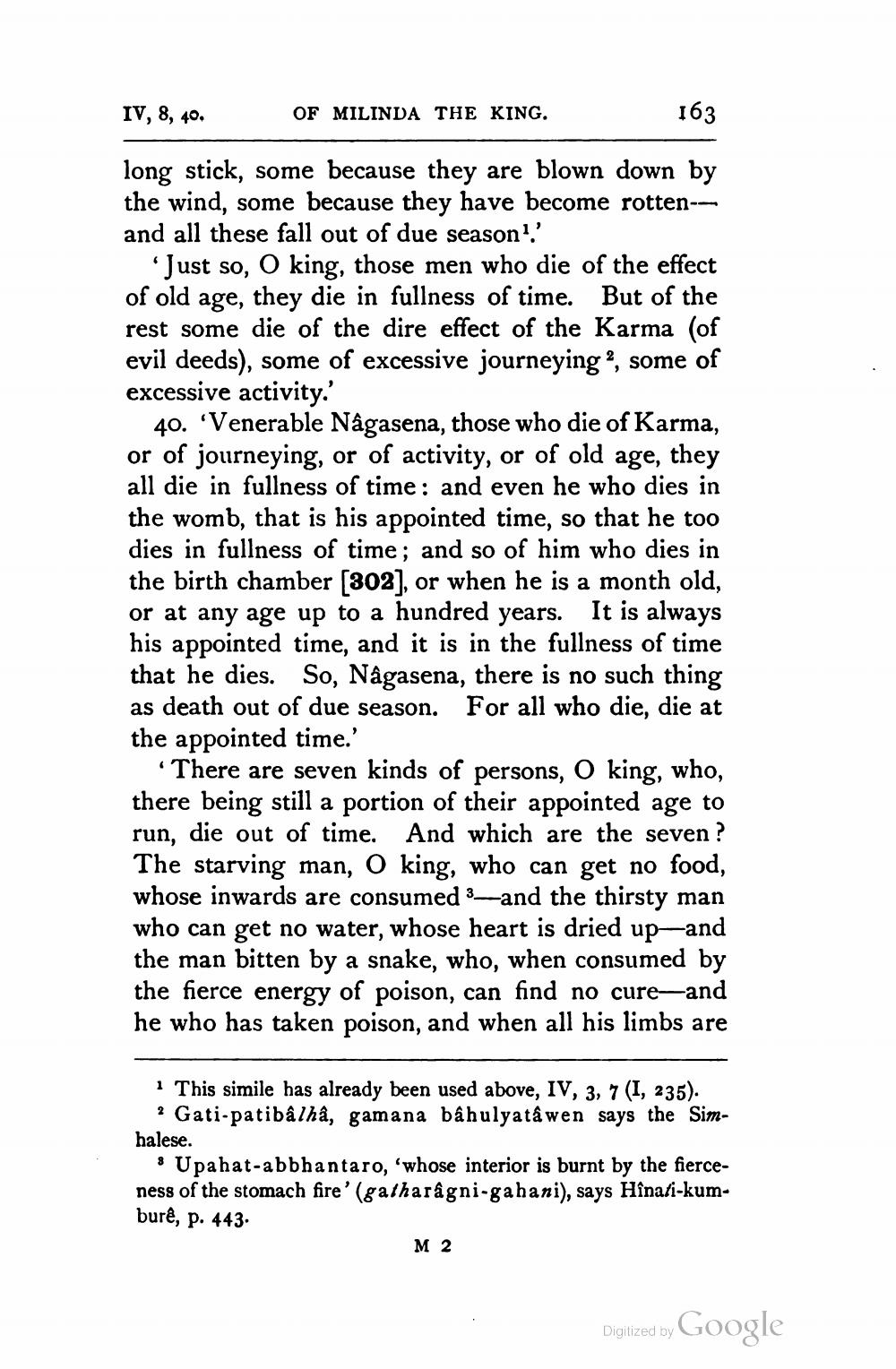________________
IV, 8, 40.
OF MILINDA THE KING.
163
long stick, some because they are blown down by the wind, some because they have become rotten-- and all these fall out of due season".'
Just so, O king, those men who die of the effect of old age, they die in fullness of time. But of the rest some die of the dire effect of the Karma (of evil deeds), some of excessive journeying?, some of excessive activity.'
40. 'Venerable Nâgasena, those who die of Karma, or of journeying, or of activity, or of old age, they all die in fullness of time: and even he who dies in the womb, that is his appointed time, so that he too dies in fullness of time; and so of him who dies in the birth chamber [302], or when he is a month old, or at any age up to a hundred years. It is always his appointed time, and it is in the fullness of time that he dies. So, Nagasena, there is no such thing as death out of due season. For all who die, die at the appointed time.'
There are seven kinds of persons, O king, who, there being still a portion of their appointed age to run, die out of time. And which are the seven? The starving man, O king, who can get no food, whose inwards are consumed 3-and the thirsty man who can get no water, whose heart is dried up and the man bitten by a snake, who, when consumed by the fierce energy of poison, can find no cure-and he who has taken poison, and when all his limbs are
· This simile has already been used above, IV, 3, 7 (I, 235).
? Gati-patibâlhâ, gamana bâhulyatâwen says the Simhalese.
8 Upahat-abbhantaro, 'whose interior is burnt by the fierceness of the stomach fire' (gatharâgni-gahani), says Hînati-kumburê, p. 443
M 2
Digitized by Google




